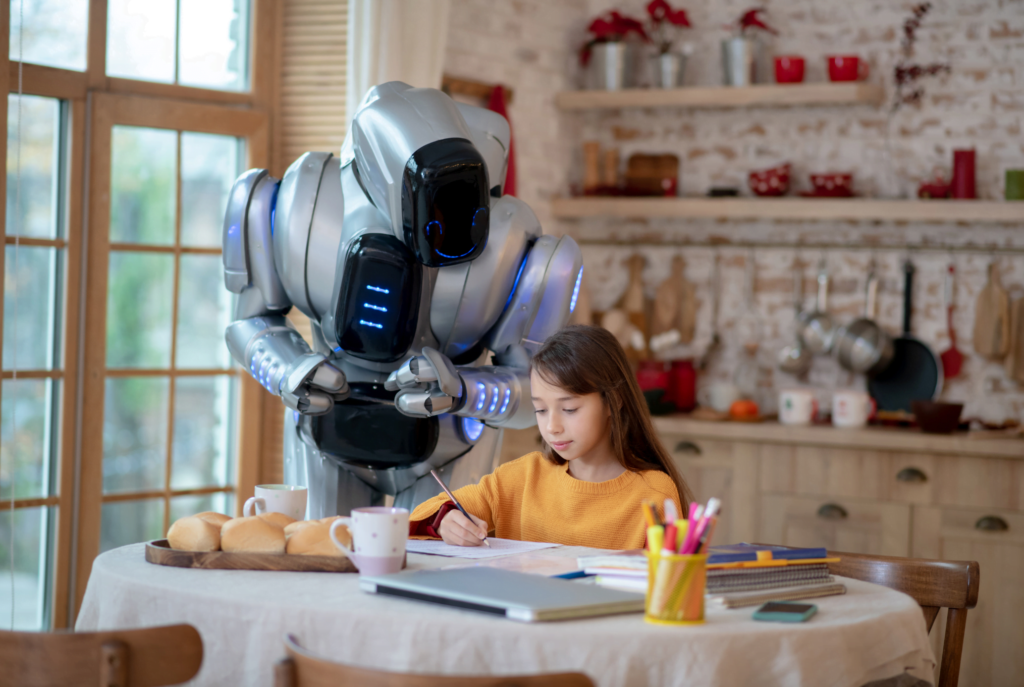The rapid advancements in artificial intelligence (AI) have sparked a heated debate about the future of education. One pressing question that emerges is: “Will AI replace teachers?” This blog post aims to debunk the myths surrounding AI in education and highlight the irreplaceable role of teachers in the classroom.
Myth 1: AI Will Completely Replace Teachers
One of the most prevalent myths is that AI will entirely replace teachers. While AI has made significant strides in automating tasks and personalizing learning experiences, it cannot replicate the human touch that teachers bring to the classroom. Teachers provide emotional support, foster social skills, and adapt to the unique needs of each student—capabilities that AI cannot fully emulate.
Myth 2: AI Can Handle All Teaching Tasks
AI can assist with certain tasks, such as grading and providing instant feedback, but it cannot handle the full spectrum of teaching responsibilities. Lesson planning, classroom management, and nurturing a positive learning environment require human judgment and empathy. AI serves as a valuable tool to complement these tasks, enhancing efficiency but not replacing the teacher’s role.
Myth 3: AI Offers Personalized Learning Without Teachers
AI-driven platforms offer personalized learning paths based on students’ progress and performance. However, the interpretation and adjustment of these paths require a teacher’s expertise. Teachers understand the context, background, and individual challenges of their students, enabling them to provide personalized guidance and support that AI alone cannot offer.
The Role of AI in Education
Administrative Efficiency: AI can automate administrative tasks such as attendance tracking, grading, and scheduling, allowing teachers to focus more on teaching and engaging with students.
Supplemental Tutoring: AI-powered tutoring systems can offer additional support outside the classroom, reinforcing concepts and providing practice opportunities. These systems serve as a supplement to, not a replacement for, traditional teaching.
The Irreplaceable Role of Teachers
Emotional Intelligence: Teachers offer emotional support and encouragement, helping students navigate the challenges of learning and personal development. This human connection is crucial for fostering a positive learning environment.
Adaptability: Teachers can adapt to unexpected situations, adjust their teaching strategies on the fly, and provide real-time feedback and support. This level of adaptability and responsiveness is beyond the current capabilities of AI.
Social Development: Classroom interactions facilitated by teachers are essential for developing social skills. Group projects, discussions, and peer interactions guided by teachers play a vital role in students’ social and emotional growth.
Conclusion
The question isn’t whether AI will replace teachers, but how AI can support and enhance the teaching profession. By automating routine tasks and providing data-driven insights, AI allows teachers to focus on what they do best: inspiring, mentoring, and educating students. Teachers and AI together can create a more efficient, personalized, and supportive learning environment.
In summary, while AI brings transformative potential to education, it cannot replace the unique qualities and critical roles that teachers play. By embracing AI as a supportive tool, we can enhance the educational experience and prepare students for a future where technology and human skills go hand in hand.
For more insights into the intersection of technology and education, stay tuned to our blog!

